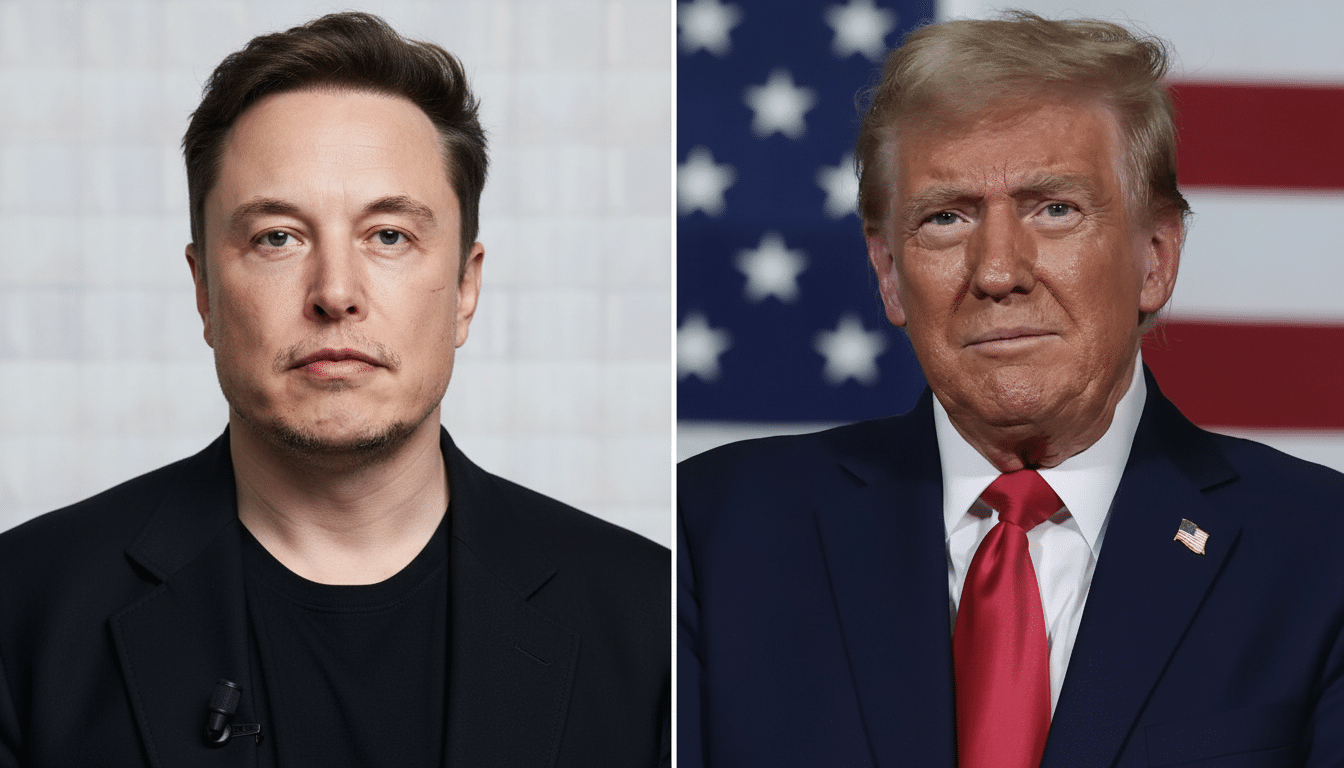The Trump administration has gutted the Department of Government Efficiency — DOGE, for short — the flashy federal cost-cutting unit once headed by Elon Musk. The sudden halt terminates a brief, fraught experiment in grafting Silicon Valley speed to Washington’s bureaucracy with many months left in the unit’s charter, officials and several media reports said.
Established through an executive order and embedded in the United States Digital Service, DOGE was designed to centralize audits, eliminate what it described as fraud and waste — a slogan that has held over from previous administrations — and shrink the federal footprint. The team pulled in Musk allies and veterans of his companies with the intention of applying tech-style playbooks to sprawling federal programs. Supporters advertised quick victories; skeptics detected a shadow chain of command trampling on norms, process and accountability.
- Why the Musk-linked federal cost-cutting unit ended
- Savings claims face scrutiny and calls for audited results
- Data security and oversight questions around DOGE methods
- Where the DOGE staff landed after the unit was disbanded
- Implications for federal workers and contractors
- The bigger lesson: speed without patience invites backlash

Why the Musk-linked federal cost-cutting unit ended
The OPM director, Scott Kupor, has said on social media that there is no longer a centralized team for DOGE. The core ideas of the unit — eliminating red tape, attacking fraud and abuse, and making efficiency a first-class priority — would continue through traditional government channels even as the specific dedicated structure disappears, he said.
Musk exited DOGE in a very public falling-out with the president, which deprived the unit of its star patron and political insulation. Those with DOGE concerns believed the swagger and hashtaggery of the Tesla CEO might once have helped secure clemency if needed. The feeling of being exposed, as well as growing pushback from agencies and Congress, sped up the unspooling of the program.
Savings claims face scrutiny and calls for audited results
DOGE promised multibillion-dollar savings for taxpayers, but independent verification was scant. Lawmakers and budget analysts pushed for audited numbers linked to actual line items and out-year projections, saying that headline savings often conflated planned program cuts with the amount of money saved. The Government Accountability Office has, for years, published imprecise estimates on improper payments throughout the federal enterprise totaling hundreds of billions a year, tempting prey — but translating that into proven and recurring savings requires strict controls, transparent methodologies and strong adoption by agencies across government.
Opponents of the unit also cite human costs. After the United States Agency for International Development was shut down, humanitarian organizations sounded a warning that flows of help would shrink in crisis areas, with inevitable knock-on effects on mortality and displacement. Public health experts say the kind of sharp pullback in disaster relief and vaccination programs tends to cause measurable harm, though separating DOGE’s direct impact demands more information than has been made public.
Data security and oversight questions around DOGE methods
Outside of budget politics, DOGE came under scrutiny for who it leaned on to get its hands on sensitive federal data. According to reports, staff scraped personally identifiable data from a number of agency systems in order to search for fraud, leading to concerns over compliance with FISMA and FedRAMP as well as individual authority-to-operate rules at the agencies. Inspectors general and security officials have long warned that ad hoc, rapid-access initiatives can outpace the necessary privacy impact assessments and logging standards — leading to insider threats, misconfiguration and external compromise.
Historically, the U.S. Digital Service has walked a line between fast engineering and compliance guardrails. By consolidating cross-agency data work as part of a politically charged cost-cutting mission, DOGE raised the profile of risk and the spotlight on whether proper audit trails, encryption controls and segregation of duties were in place. Critics say they were not; DOGE defenders argue that the stance matched the fraud challenge.

Where the DOGE staff landed after the unit was disbanded
According to Reuters, many DOGE workers have since been moved out of their branch into different government offices or into unknown status, and some have left the government altogether. Amy Gleason, who was appointed acting administrator earlier this year, indicated she is still making her mark in public service by posting a sardonic meme that winked at the project’s canine branding. One leading member of the unit posted on social media that he was “officially out,” underscoring how far and fast the network has spread.
The redistribution of the DOGE staff across agencies means that projects will either be transitioned into existing modernization efforts or be sunset. Career officials say the shift should pull change management back into agency budget cycles, chief data officer councils and regular acquisition pathways, rather than as a centrally operated strike team.
Implications for federal workers and contractors
The federal workforce — approximately two million civilian employees — has endured years of churn from hiring freezes, reclassifications and reorganizations. DOGE’s disestablishment could moderate that volatility, at least in the short term, by returning efficiency initiatives through OMB and agency leadership with established labor, privacy, and procurement consultative processes.
Contractors should also expect a reset — a rebooting of recompetes and re-scopes and more strenuous performance baselines associated with Payment Integrity Information Act (PIIA) requirements and GAO recommendations. The focus is likely to move from splashy “savings” announcements toward whether outcomes like fewer improper payments, faster delivery times and better citizen experience metrics are actually achieved — audited by a standard dashboard of measures and inspector general reports.
The bigger lesson: speed without patience invites backlash
DOGE was a brash wager that startup urgency could overcome entrenched public-sector drag. Its unraveling epitomizes an old story about federal reform: swift minus patience seldom survives the encounter with oversight. Sustainable change requires transparent methodologies, auditable financials, repeatable playbooks, and early dialogue with the unions, IGs and congressional committees.
The administration says the mission is ongoing as the brand goes away. If the next chapter marries data-driven fraud detection with the guardrails that public agencies need, the government might actually reel in real savings — without all of the chaos that turned DOGE into a headline and, ultimately, a cautionary tale.

